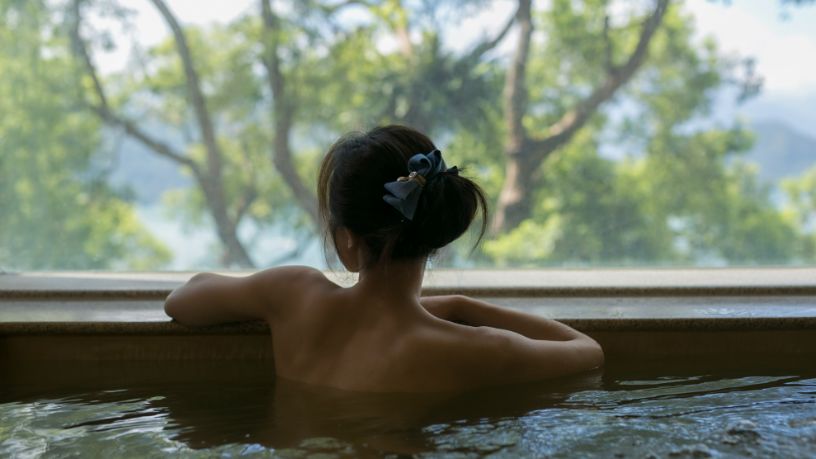On this page
Key takeaways
- Cold water therapy has a range of potential benefits for your physical and mental health.
- Studies show that a reduction in stress and improved immune function may develop after being immersed in cold water.
- Speak to your GP before starting any cold water therapy to ensure it’s safe for you.
Whether it’s taking a cold shower, plunging into an ice bath or braving the winter ocean for a swim, cold water therapy is one of the hottest wellness trends of the last few years.
But what exactly is cold water therapy, and is it right for you? Let’s dive in.
What is cold water therapy?
Sometimes referred to as cold water immersion (CWI), cold water therapy is the act of using water no warmer than 10-15°C to reportedly shock the cardiovascular system, improving its function and circulation as well as boosting your immune system and reducing inflammation.
With a range of reported health benefits, it’s gathered a lot of attention largely thanks to the influence of the Wim Hof Method and the social media attention that’s developed around it.
Known as The Iceman, Dutchman Wim Hof is an extreme athlete who has broken records related to cold exposure. Hof believes that everyone has the ability to use the cold, breathing techniques and mindset to improve their physical and mental health.1
From a cold shower to a very chilly ice bath, there are a range of ways you can experiment with cold water therapy to see if it’s right for you. However, the latest research suggests that many of the physical and mental benefits may be short-lived, and it may not be right for everyone.2
What are the benefits of cold water therapy?
Improved mental health
A 2025 study from the University of South Australia found that CWI reduced stress levels for a period of up to 12 hours.2
Further research has found that CWI can help promote a feeling of connectedness and personal growth, as well as other psychological benefits.3
Improved immunity
While traditionally we may equate being cold with sickness, the opposite may be true of cold water therapy benefits. A 2024 study showed greater cell activation leading to strengthened immune function in participants who took regular cold showers.4
Other research suggests that swimming in cold water can reduce the number of infections a person may contract. This may be caused by the short-term stress response that happens in the body when submerged in cold water, which prepares the immune system to start fighting off harmful bacteria.5
Reduced muscle soreness
Just like icing an injury, cold water exposure may help reduce swelling, inflammation and muscle fatigue, which is why we see athletes and sport stars using ice baths after big events or games.
One study involving 20 athletes found that those who soaked in cold water reported less muscle soreness than those who didn’t.6
What are the risks of cold water therapy?
Cold temperature changes can be stressful on the body. So, it may be important to check in with your doctor before you take the plunge.
The American Heart Association7 states that plunging into cold water can trigger a cold shock response, which increases heart rate and blood pressure very suddenly and can stress the heart.
The cold itself can also cause problems as the body loses circulation and the ability to move and think clearly.
Certain heart medications that help to lower blood pressure can also make it harder for the body to adapt quickly to a sudden change in temperature, which may pose risks for people with a heart condition.
How to get started safely
Choosing the type of cold water therapy you’d like to try is the first step. These can include:
- Cold showers or baths
- Ocean swimming
- Ice baths.
Temperature
Time
When it comes to cold water, staying in too long puts you at risk of a potentially life-threatening condition called hypothermia, which develops when your body temperature drops too low.8
If you’re starting out, the Wim Hof Method recommends exposing yourself to cold water for 2 minutes, with water up to your chest if you’re bathing, to adapt and reap the full benefits. From there, it’s a good idea not to expose yourself to cold water for any longer than 10 to 15 minutes.
If you’re struggling to get into a cold shower, Wim Hof suggests taking a normal shower then making it cold for the last 30 seconds, increasing that time as your tolerance increases.
Take precautions
If you’re keen to try any cold water therapies, asking for some support is always recommended.
Many gyms and sports facilities now offer supervised ice baths that incorporate warm water treatments as part of the therapy.
If cold water swimming is right for you, never go out alone and stay close enough to shore that if you do start to feel unwell you can make it back without any difficulty.

At Bupa, trust is everything
Our health and wellbeing information is regularly reviewed and maintained by a team of healthcare experts, to ensure its relevancy and accuracy. Everyone's health journey is unique and health outcomes vary from person to person.
This content is not a replacement for personalised and specific medical, healthcare, or other professional advice. If you have concerns about your health, see your doctor or other health professional.
1Wim Hof Method. (2025). https://www.wimhofmethod.com/
2University of South Australia. (2025). The big chill: is cold-water immersion good for our health?
3Ono, M., Wahl, M., Mekonen, R., Kemp-Smith, K., & Furness, J. (2025). Cold water immersion: Exploring the effects on well-being–scoping review. International Journal of Wellbeing, 15(1).
4El-Ansary, M. R., El-Ansary, A. R., Said, S. M., & Abdel-Hakeem, M. A. (2024). Regular cold shower exposure modulates humoral and cell-mediated immunity in healthy individuals. Journal of Thermal Biology, 125, 103971.
5Knechtle, B., Waśkiewicz, Z., Sousa, C. V., Hill, L., & Nikolaidis, P. T. (2020). cold water swimming-benefits and risks: a narrative review. International journal of environmental research and public health, 17(23), 8984.
6Yeung, S., Ting, K., Hon, M., Fung, N., Choi, M., Cheng, J., & Yeung, E. (2016). Effects of Cold Water Immersion on Muscle Oxygenation During Repeated Bouts of Fatiguing Exercise. Medicine (Baltimore), 95(1), e2455.
7The American Heart Association. (2022). You're not a polar bear: The plunge into cold water comes with risks.
8Healthdirect. (2022). Hypothermia. Healthdirect.
You might also like...
Wintering: 4 rituals for the cooler months
Staying healthy and happy in the cooler months may be easier (and more restful) than you think. Check out 4 tips for doing winter well.
Breathing exercises to reduce stress and anxiety
Discover easy breathing exercises to reduce stress and anxiety. Mindful breathwork can help calm your mind, boost focus, and support mental wellbeing.
Relaxation tips for busy people
It can be hard to find time to relax when you’re busy living the nine-to-five. But 10 minutes can go a long way. Relax every day with these 7 tips.
Are hot springs good for you?
You may have spent time soaking in thermal waters, but does the practise actually have any health benefits? Find out if hot springs are really good for you.





